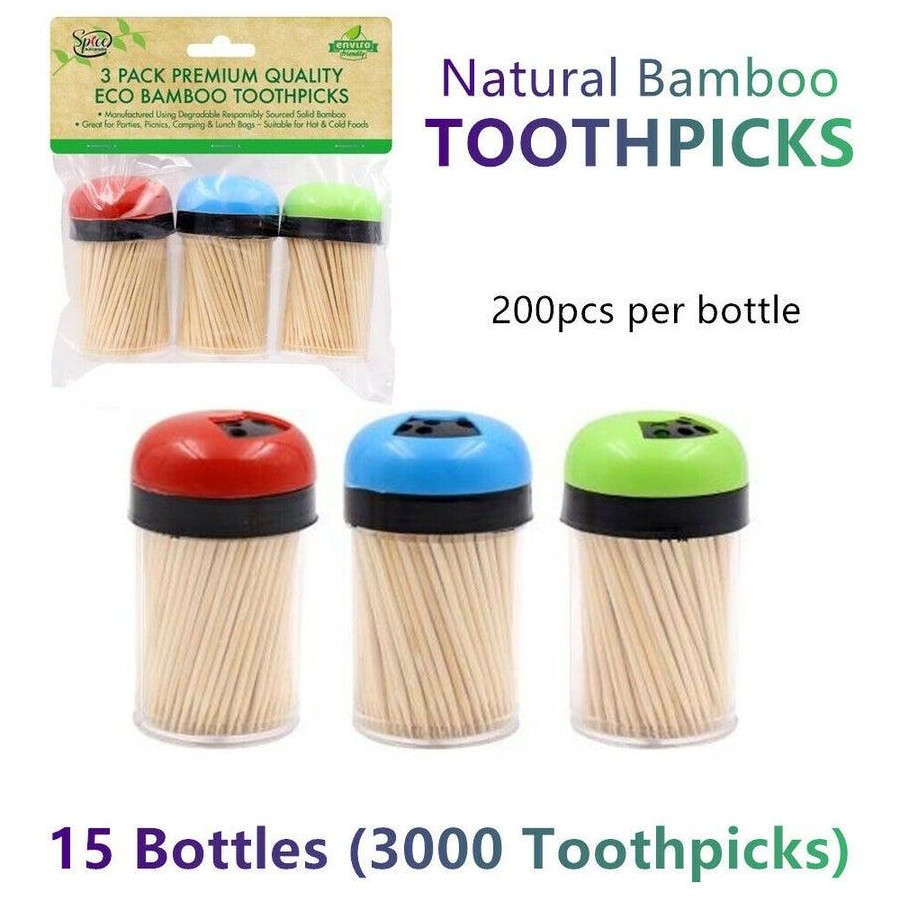The humble tiny toothpicks, a seemingly insignificant item, have become a focal point in the global conversation about plastic pollution. These small, disposable tools are often overlooked in the grand scheme of environmental concerns, but their cumulative impact is undeniable.
The Plastic Peril
Plastic toothpicks, like many single-use plastic items, pose a significant threat to our planet. Let’s break down why:
- Non-biodegradable: Plastic, by its nature, is incredibly resistant to decomposition. When discarded, plastic toothpicks can persist in the environment for hundreds of years, contributing to the growing plastic waste crisis.
- Microplastics: Over time, plastic breaks down into tiny microplastics. These minuscule particles infiltrate our ecosystems, harming wildlife and potentially entering the human food chain.
- Resource Depletion: The production of plastic toothpicks requires fossil fuels, a non-renewable resource. This contributes to greenhouse gas emissions and climate change.
- Landfill Burden: Plastic toothpicks contribute to overflowing landfills, taking up valuable space and releasing harmful chemicals into the soil and groundwater.
Beyond the Toothpick: A Systemic Issue
The issue with plastic toothpicks is part of a broader problem related to single-use plastics. Our reliance on convenience has led to a culture of disposable items, placing an immense strain on the environment. It’s essential to recognize that making conscious choices about everyday items can collectively make a substantial difference.
Eco-Friendly Alternatives: Small Swaps, Big Impact
Fortunately, there are numerous eco-friendly alternatives to plastic toothpicks. By making a conscious shift, you can reduce your environmental footprint without compromising on convenience.
- Bamboo Toothpicks: Derived from a rapidly renewable resource, bamboo toothpicks are a popular and sustainable choice. They are biodegradable and compostable, making them a much better option for the environment.
- Wooden Toothpicks: While not as sustainable as bamboo, wooden toothpicks are still preferable to plastic. Opt for those sourced from responsibly managed forests.
- Reusable Toothpicks: For those seeking a truly zero-waste option, reusable toothpicks made from stainless steel or other durable materials are available. These can be cleaned and reused multiple times, significantly reducing waste.
- Avoidance: Perhaps the most eco-friendly approach is to reduce toothpick usage altogether. Consider alternatives like dental floss or rinsing with water after meals.
Beyond the Product: A Call to Action
While switching to eco-friendly toothpicks is a positive step, it’s essential to address the root of the problem. We need to shift towards a circular economy where products are designed to be reused, repaired, or recycled. Consumers can play a vital role by demanding sustainable options from businesses and supporting companies committed to environmental responsibility.
Additionally, proper waste management and recycling infrastructure are crucial. By recycling plastic items when possible and disposing of them responsibly, we can minimize their impact on the environment.
Related: Beyond Basics: Mastering the Art of Rope Knots
A Brighter Future
The journey towards a plastic-free world may seem daunting, but every small action counts. By making conscious choices like opting for eco-friendly toothpicks, we can contribute to a healthier planet for ourselves and future generations. Remember, it’s not about perfection but progress. Small steps can lead to significant changes. Let’s embrace sustainability and work together to protect our environment.





